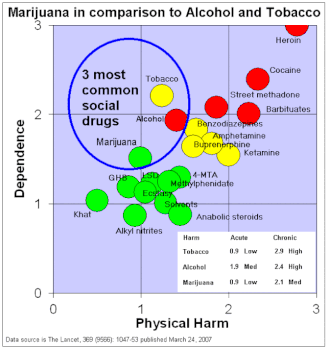 Image courtesy Forbes Magazine.
Image courtesy Forbes Magazine. In my years of practice, I have seen the issue of opioid addiction come up time and again. Opioid addiction is hardly a new phenomenon; the British even fought two wars to ensure that they could deal opium in China (while simultaneously banning opium in Britain), perhaps cementing Great Britain as the world's first modern narco-state.
In any event, now that the opioid epidemic is an official national priority, and with the imminent implementation of national policies on this issue, perhaps it would be wise to take a step back and try to figure out how to deal with one of the most addictive drugs in the world.
But in order to deal with it, we have to face some facts -- facts which are not as well-publicized:
- Over 40% of American soldiers who had served in Vietnam during the Vietnam War tried heroin, and 20% became addicted.
- But, 96% of the soldiers who did not receive treatment for their heroin addictions resolved their addictions without treatment.
- Yet, of the soldiers who did receive treatment, 67% relapsed.
One can definitely argue that perhaps those who did not receive treatment, either by choice or because their addictions were not sufficiently problematic to result in forced treatment, were not as addicted as those who were subject to treatment. This might mean that those who received treatment were more troubled and therefore had more potential for relapse. Other arguments may be that treatment was less sophisticated in past years, or that the statistical analysis is flawed in some way. These are all valid counterpoints, but then look at this statistic:
"Of the Vietnam vets who were addicted to heroin in the war, 98% of them didn't get treatment, yet only 12% relapsed. Recovery, without treatment, is the norm."
In any event, now that the opioid epidemic is an official national priority, and with the imminent implementation of national policies on this issue, perhaps it would be wise to take a step back and try to figure out how to deal with one of the most addictive drugs in the world.
But in order to deal with it, we have to face some facts -- facts which are not as well-publicized:
- Over 40% of American soldiers who had served in Vietnam during the Vietnam War tried heroin, and 20% became addicted.
- But, 96% of the soldiers who did not receive treatment for their heroin addictions resolved their addictions without treatment.
- Yet, of the soldiers who did receive treatment, 67% relapsed.
One can definitely argue that perhaps those who did not receive treatment, either by choice or because their addictions were not sufficiently problematic to result in forced treatment, were not as addicted as those who were subject to treatment. This might mean that those who received treatment were more troubled and therefore had more potential for relapse. Other arguments may be that treatment was less sophisticated in past years, or that the statistical analysis is flawed in some way. These are all valid counterpoints, but then look at this statistic:
"Of the Vietnam vets who were addicted to heroin in the war, 98% of them didn't get treatment, yet only 12% relapsed. Recovery, without treatment, is the norm."

 RSS Feed
RSS Feed
